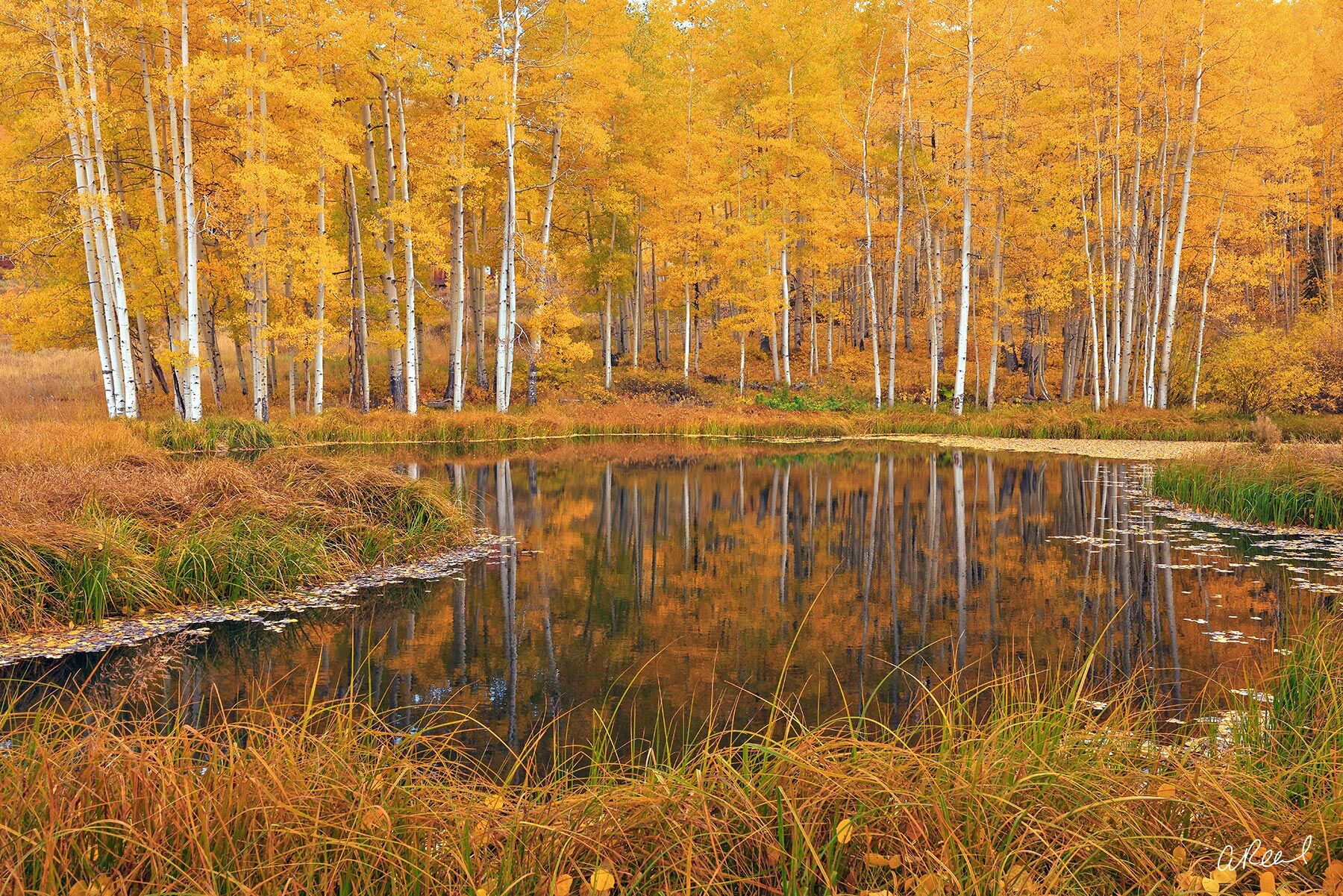Editor’s Note: The poet’s exquisite, strangely beautiful language and artful rhyme amplify his feelings of despair at losing a treasured and unique stand of aspens. His message is even more pertinent today, when instead of a few trees lost, we are delving and hewing entire forests and their important ecosystems.
Binsey Poplars
felled 1879
My aspens dear, whose airy cages quelled,
xQuelled or quenched in leaves the leaping sun,
xAll felled, felled, are all felled;
xxOf a fresh and following folded rank
xxxxxxxxxNot spared, not one
xxxxxxxxxThat dandled a sandalled
xxxxxxShadow that swam or sank
On meadow & river & wind-wandering weed-winding bank.
xO if we but knew what we do
xxxxxWhen we delve or hew —
xxxHack and rack the growing green!
xxxxxSince country is so tender
xxxTo touch, her being só slender,
xxxThat, like this sleek and seeing ball
xxxBut a prick will make no eye at all,
xxxWhere we, even where we mean
xxxxxxxxxTo mend her we end her,
xxxxxxxWhen we hew or delve:
After-comers cannot guess the beauty been.
xTen or twelve, only ten or twelve
xxxStrokes of havoc unselve
xxxxxxxThe sweet especial scene,
xxxRural scene, a rural scene,
xxxSweet especial rural scene.
Gerard Manley Hopkins SJ (28 July 1844 – 8 June 1889) was an English poet and Jesuit priest, whose posthumous fame places him among the leading English poets. His prosody—notably his concept of sprung rhythm—established him as an innovator, as did his praise of God through vivid use of imagery and nature. Only after his death did Robert Bridges publish a few of Hopkins’s mature poems in anthologies, hoping to prepare for wider acceptance of his style. By 1930 Hopkins’s work was seen as one of the most original literary advances of his century.




Darrell Parsons says
Wonderful poem. Thank you.
Spy Poetry says
Yes, one of my favorites. Also, you might want to check out “The Windhover” and “God’s Grandeur.”. They’re both online.